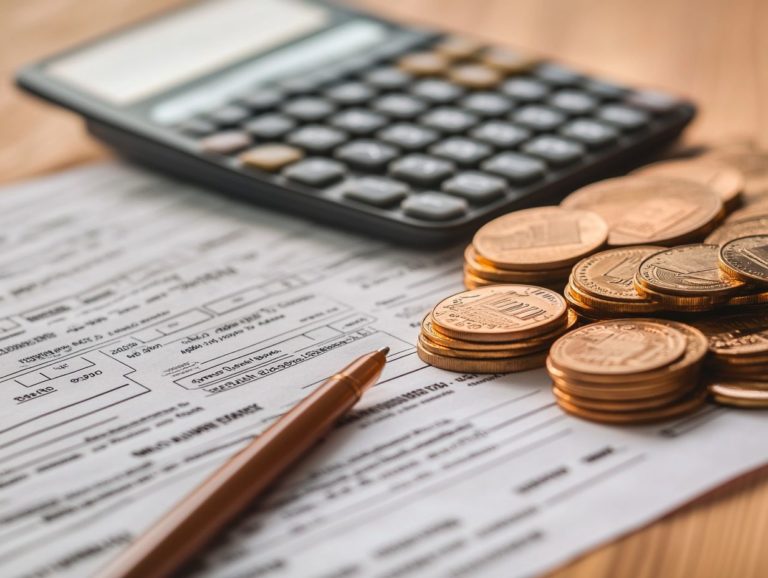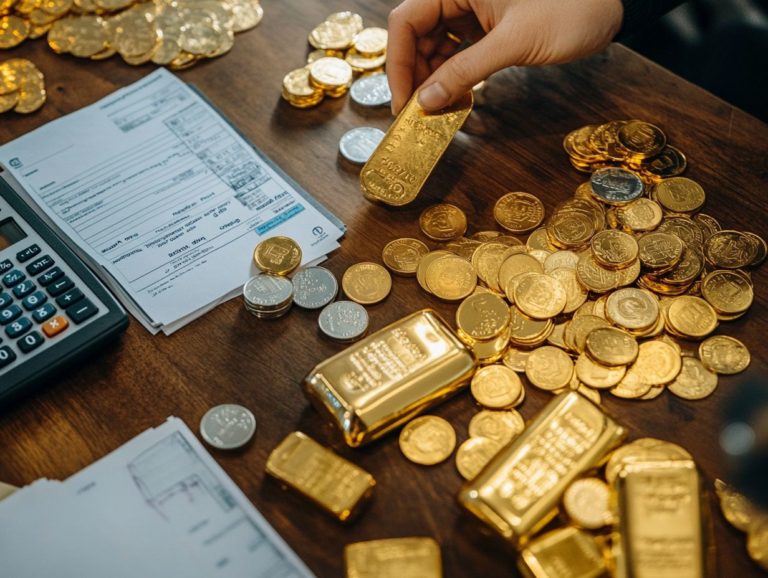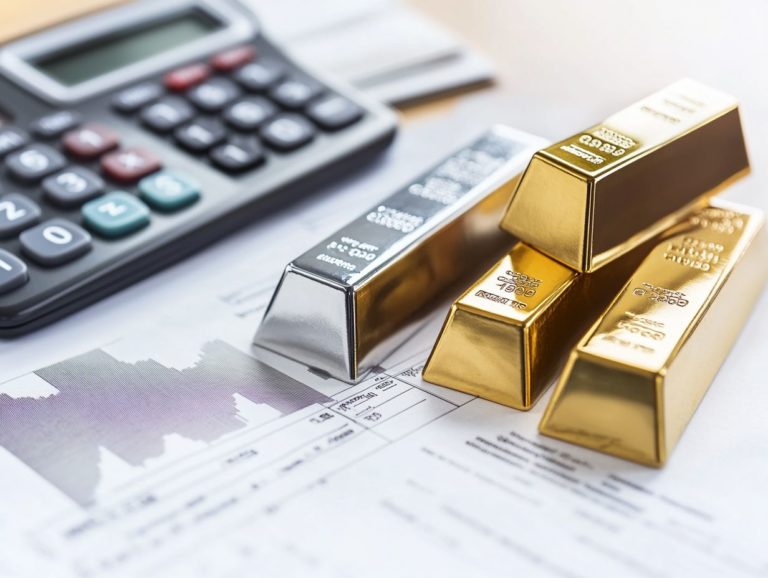Tax Consequences of Donating Precious Metals
Donating precious metals presents a significant opportunity to support charitable causes while also exploring potential tax advantages.
This article delves into what qualifies as a donation, the tax implications of contributing valuable items, and best practices for accurately assessing their worth. It also addresses the specific requirements set by charitable organizations and alternative donation options available to you.
Whether you’re contemplating a generous gift or simply seeking to understand the process better, this guide will give you powerful insights to make the most of your donation!
Contents
- Key Takeaways:
- Overview of Donating Precious Metals
- Tax Implications of Donating Precious Metals
- How to Determine the Value of Donated Metals
- Other Considerations for Donating Precious Metals
- Frequently Asked Questions
- What are the tax consequences of donating precious metals?
- What types of precious metals can be donated for tax purposes?
- Is there a limit to the amount of precious metals I can donate for a tax deduction?
- Can I donate precious metals directly to a charity?
- Are there any potential tax consequences if I sell my donated precious metals?
- Can I claim a tax deduction for donating precious metals that have decreased in value?
Key Takeaways:
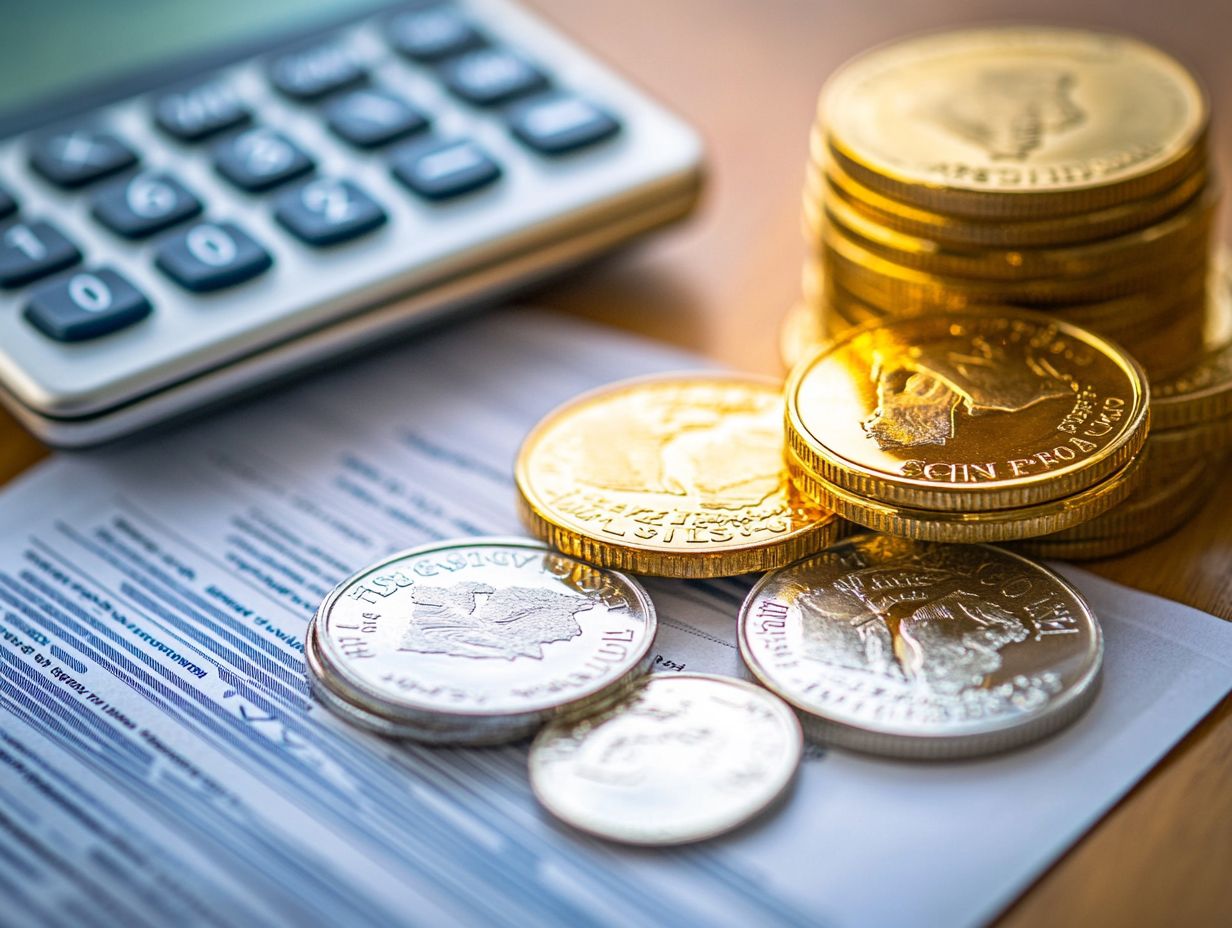
- Donating precious metals to a charitable organization can have tax implications, including the ability to deduct the value of the donation from your taxes.
- When determining the value of donated metals, it is important to consider factors such as market value, purity, and any relevant appraisals.
- Before donating, ensure the organization is eligible to receive tax-deductible donations. Also, consider alternative options such as gifting the metals directly to individuals or selling and donating the proceeds.
Overview of Donating Precious Metals
Donating precious metals like gold coins, gold bars, and silver investments is not just an act of generosity; it s a savvy way to support charitable organizations while potentially reaping significant tax benefits.
It’s essential for you to understand the IRS requirements surrounding these donations to ensure compliance and maximize the impact of your contribution. When you think about donating these valuable items, remember to consider the tax rules, including any applicable capital gains tax and the potential tax consequences of precious metals inheritance, as well as how this decision might affect your overall investment portfolio.
What is Considered a Donation?
A donation is essentially a voluntary transfer of assets think physical gold or silver to a charitable organization, all without expecting anything in return. This generous act can help lower your taxes, according to IRS rules.
According to the IRS, eligible assets for donation can range from cash and stocks to bonds and even tangible goods like clothing or vehicles, provided they are given to a qualified charitable organization. These donations not only benefit the charity but also open the door for you to enjoy potential tax deductions, creating a win-win scenario. Additionally, if you’re involved in business transactions involving precious metals, it’s important to understand the tax implications of precious metals, as they can affect your overall financial strategy.
It s crucial for you to verify that the organization is recognized as tax-exempt. Otherwise, contributing to non-qualified entities could leave you without any tax benefits, ultimately reducing the impact of your generosity.
Tax Implications of Donating Precious Metals
Donating precious metals can carry significant tax implications that you, as an investor, should fully grasp, especially regarding capital gains tax. This tax is levied on the appreciation of these assets over time.
According to IRS guidelines, making donations can effectively lower your overall tax liability by permitting deductions based on the fair market value of the metals you donate, as long as they adhere to specific reporting requirements. Additionally, being aware of tax considerations for investing in precious metals futures can make a meaningful difference in your financial strategy.
Deducting the Value of Donated Metals
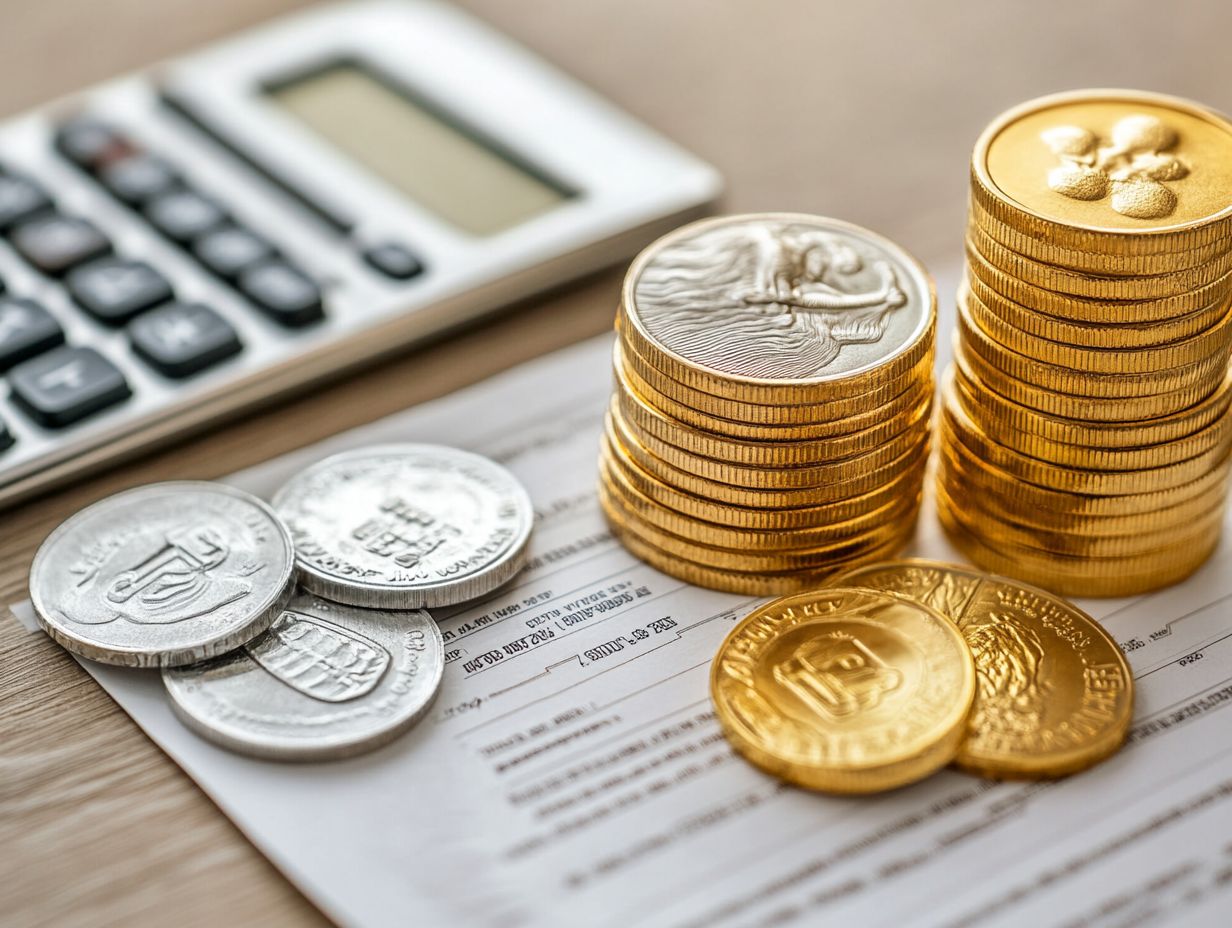
The value of donated metals, including gold and silver coins, can be deducted from your taxable income, as long as you follow IRS guidelines and accurately report the donation’s value.
To ensure you’re in compliance, start by determining the fair market value of the metals at the time of donation. This typically means checking current market prices and consulting reputable sources. Additionally, it’s important to consider the pros and cons of taxing precious metals. Keeping thorough documentation, such as receipts or appraisals, is essential to support the claimed value on your tax return.
Remember, the IRS has specific limits based on the type of donation, so it’s vital to understand these restrictions to maximize your deduction benefits while staying within legal boundaries.
Reporting Requirements
When you decide to donate precious metals, it’s crucial to grasp the reporting requirements established by the IRS. Knowing these rules helps you comply and avoid tax penalties. This is particularly important when you’re filing Form 1040 and Schedule D.
You must be aware that specific forms are necessary to accurately report your donation. Any discrepancies could lead to complications with the IRS. For instance, Form 8283, which is for gifts of items instead of money, comes into play when the value of the precious metals surpasses a certain threshold typically around $500. Additionally, understanding the tax implications of buying and selling precious metals is crucial for proper reporting.
Meticulous record-keeping is essential. Keep your receipts, appraisals, and photos handy to prove the value of your donation! Neglecting these reporting obligations might invite additional scrutiny and could result in financial impacts that significantly affect your tax situation. Understanding the relationship between precious metals and capital gains tax can also help you navigate these complexities.
How to Determine the Value of Donated Metals
Determining the value of donated metals is a crucial step that can greatly influence your tax deductions and adherence to IRS requirements. The fair market value typically hinges on the current market prices of precious metals such as gold and silver. Staying informed and accurate in your assessments is essential.
Factors to Consider
When assessing the value of donated precious metals, several key factors come into play. You’ll want to consider the current market value, the type and condition of the metals, and any potential tax implications that may arise from the donation.
Market trends are essential to keep an eye on, as they can fluctuate based on global economic conditions and investor sentiment. Historical performance also offers valuable insights, helping you identify patterns of value appreciation or depreciation over time.
You should be aware of specific IRS guidelines, which detail how to calculate fair market value. This ensures compliance with relevant regulations and allows you to take advantage of potential tax deductions. Understanding these elements is crucial for both you and the recipient to ensure accurate valuation and adherence to tax planning for precious metals in a diversified portfolio.
Other Considerations for Donating Precious Metals
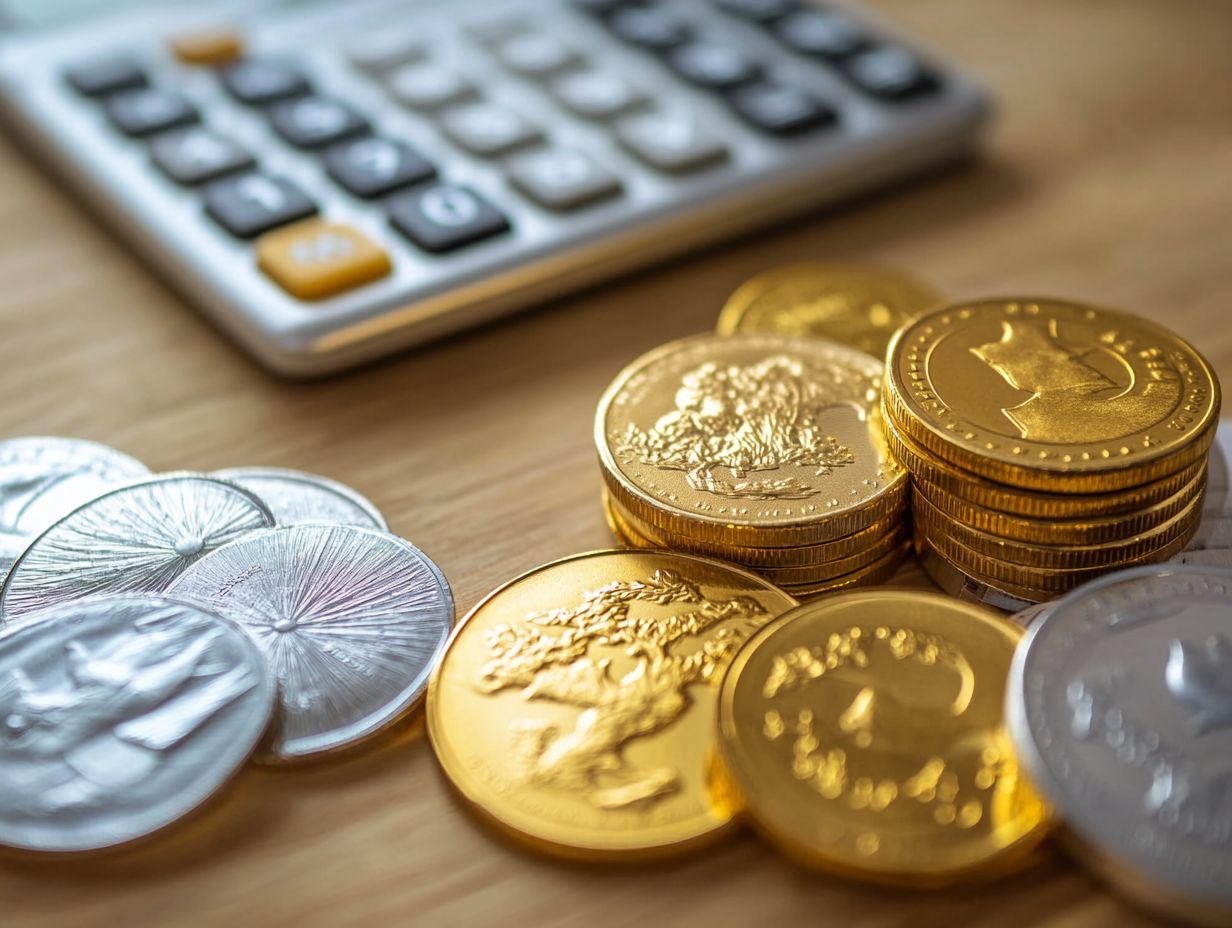
Beyond tax implications and valuation, there are several important considerations to keep in mind when donating precious metals. It s essential to understand the requirements set by charitable organizations and how your donation aligns with your overall investment strategy.
This comprehensive approach ensures your contribution is impactful and beneficial to your financial portfolio.
Charitable Organization Requirements
Before you consider donating your precious metals, it’s crucial to ensure that the charitable organization must meet IRS requirements for tax-exempt status. This step is essential as it directly impacts your eligibility for tax deductions.
Understanding these qualifications can save you from unexpected headaches come tax season. Charitable organizations need to be classified under section 501(c)(3) of the Internal Revenue Code, which signifies their recognition as non-profit entities dedicated to public benefit think education, religion, and alleviating poverty.
By verifying this status, you re not just ensuring that your contributions support legitimate causes; you re also making sure you can take advantage of the financial benefits that such donations offer. This due diligence nurtures a culture of transparency and trust between you and the organizations you choose to support.
Alternative Options for Donating Metals
When you consider how to donate metals, know there are alternative options beyond typical charitable donations. Gift your metals to organizations or individuals that truly share your passion and values!
Exploring these alternatives can yield both tax benefits and personal satisfaction. For example, creating a trust that allows you to manage donations to a charity lets you maintain control over the assets while supporting a designated charity over time. Additionally, it’s important to consider the tax implications of trading precious metals in the market, as establishing such a trust may come with legal complexities and costs.
A tax rule that lets you defer taxes when you reinvest in similar types of properties offers tax deferment when you reinvest proceeds, although it’s generally more relevant for real estate than for metals. Plus, donating precious metals through a donor-advised fund not only provides immediate tax advantages but also allows you to be involved in decision-making regarding fund allocation. Just be aware that the funds might not be distributed as quickly as you’d like. For more detailed information, consider learning about what to know about international tax on precious metals.
Frequently Asked Questions
What are the tax consequences of donating precious metals?

Donating precious metals can have significant tax consequences, depending on the type of metal and the value of the donation. In general, making such donations can result in a charitable deduction on your tax return.
What types of precious metals can be donated for tax purposes?
Gold, silver, platinum, and palladium are all types of precious metals that can be donated for tax purposes. However, the IRS has specific rules and requirements for each type of metal, so it’s important to consult with a tax professional before making a donation.
Is there a limit to the amount of precious metals I can donate for a tax deduction?
Yes, there are limits to the amount of precious metals that can be donated for a tax deduction. Generally, the limit is set at 30% of your adjusted gross income, but this can vary depending on the type of metal and the organization you are donating to. It’s best to consult with a tax professional for specific guidance.
Can I donate precious metals directly to a charity?
Yes, you can donate precious metals directly to a charity. However, the value of the donation may be subject to certain limitations and restrictions. It’s important to follow the proper procedures and documentation requirements to ensure you receive the full tax benefit of your donation.
Are there any potential tax consequences if I sell my donated precious metals?
If you sell your donated precious metals, you may be subject to capital gains tax on any increase in value since the time of the donation. It’s important to keep accurate records and consult with a tax professional to determine the best course of action for your specific situation.
Can I claim a tax deduction for donating precious metals that have decreased in value?
No, you can only claim a tax deduction for the fair market value of the precious metals at the time of the donation. If the value has decreased, you will not be able to claim a deduction for the original amount you donated.
Ready to make a meaningful donation? Explore your options today!











